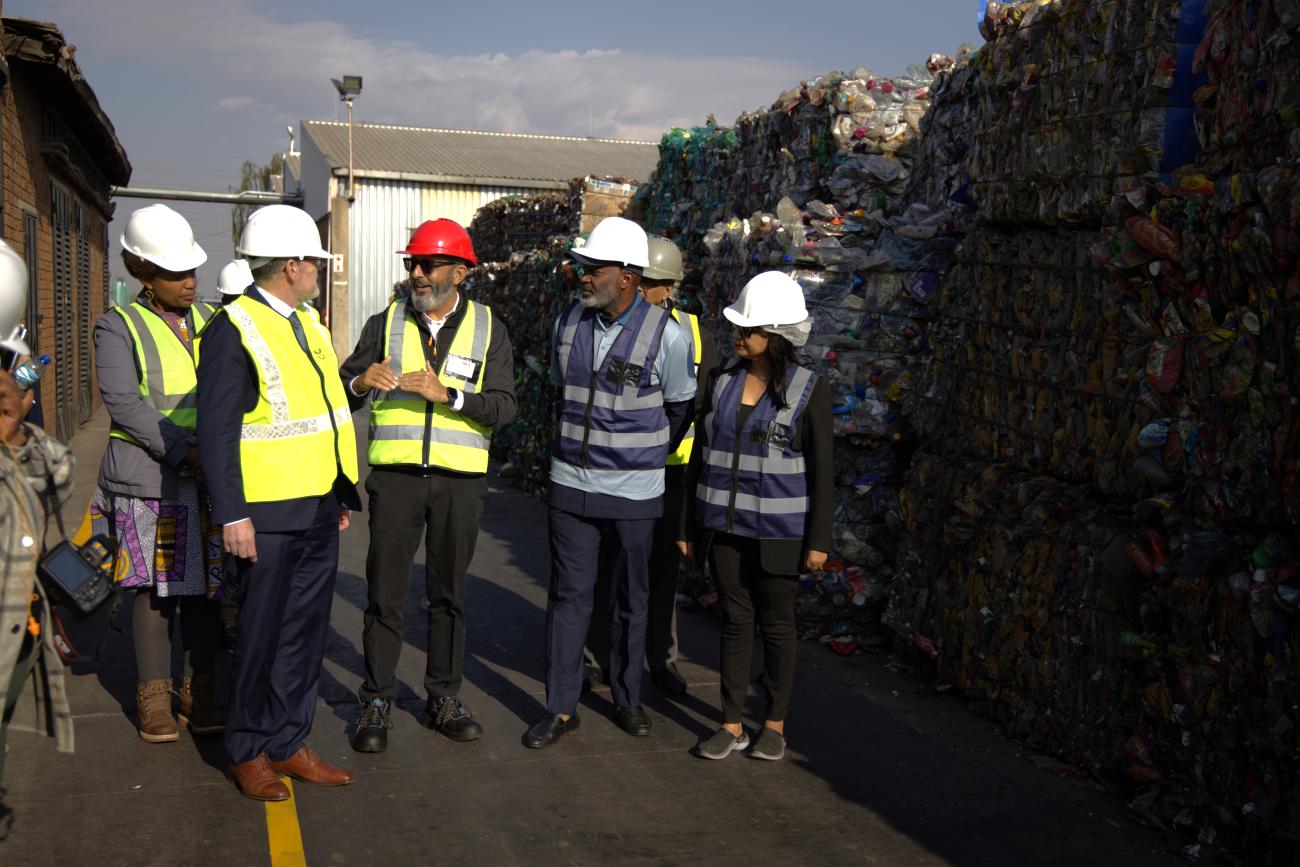The United Nations is helping South Africa to forge a greener, more inclusive path to sustainable development with a Joint SDG Fund sponsored programme that backs transformative initiatives to accelerate progress towards the Sustainable Development Goals (SDGs).
This pioneering initiative brings together several UN agencies including FAO, IFAD, ILO, UNDP, UNECA, UNEP, UNFPA, UNIDO, and UN WOMEN, to support South Africa’s shift towards a low-carbon economy, while ensuring that vulnerable communities, women, and young people are not left behind in the process.
Powering Progress with People at the Centre
The programme responds directly to South Africa’s Just Transition Framework, which is its bold commitment to phasing out fossil fuels in a way that prioritizes equity, jobs, and social justice. In a context where high unemployment, energy poverty, and inequality persist, this initiative aims to catalyse a more resilient and inclusive green economy.
“A just energy transition must be about more than technology—it must also be about people,” said Nelson Muffuh, the UN Resident Coordinator in South Africa. “This programme puts gender equality, decent work, and innovation at the heart of South Africa’s green future.”
By fostering community-level engagement, building local capacity, and addressing structural inequalities, the joint programme is designed to ensure that the benefits of a cleaner energy future reach the most marginalised—including smallholder farmers, youth, and women entrepreneurs.
An Integrated UN Partnership for Change
Each participating agency brings a critical dimension to the partnership. For instance:
- UN Women ensures that women’s leadership and participation are embedded across green value chains and energy policy design.
- UNIDO contributes technical know-how in industrial innovation, clean energy solutions, and Micro Small and Medium Enterprises (MSME) development.
- ILO provides support through promotion of social justice, decent work strategies, and environmental sustainability.
The programme is promoting women’s leadership in areas such as financial inclusion and gender-responsive energy transitions while identifying structural barriers and gender inequalities that hinder women’s economic empowerment in the energy and electricity sectors; sustainable practices in agriculture which incorporates the interests of smallholder farmers through access to new technologies and adoption of renewable sources of energy in their production process; ensuring the participation of small holders, women, marginalised groups and local communities in the hydrogen value chain; and engaging communities through inclusive dialogues to co-design locally driven solutions.
“This programme shows what’s possible when we combine innovation with inclusion,” noted Dr Kefiloe Masiteng, Head of the UN Resident Coordinator’s Office. “South Africa can lead the way in showing that climate action and economic justice can go hand in hand.”
Backed by Global Solidarity
This joint programme is made possible through seed funding from the Joint SDG Fund, a global pooled funding mechanism dedicated to unlocking systemic progress towards the SDGs.
These international contributions reflect a growing global commitment to climate justice, and to building resilient economies that prioritize both people and planet.
Towards Transformative Impact
Looking ahead, the initiative will prioritize:
- Targeted dialogues with affected communities to co-design and lead implementation.
- Expert technical support through the UN system and external specialists to address persistent barriers in energy access.
- Scalable solutions to improve renewable energy integration in rural and informal economies—especially among smallholder farmers and MSMEs.
- And the documentation of impact stories and lessons learned, to influence national policy and global practice.
Aligned with SDG 7 (Affordable and Clean Energy), SDG 8 (Decent Work and Economic Growth), and SDG 13 (Climate Action), this programme exemplifies what integrated, multi-stakeholder collaboration can achieve.
As implementation gains momentum in 2025, the UN and its partners remain committed to ensuring that South Africa’s just energy transition is not only green—but also just, inclusive, and transformative.
This joint programme is supported by the Joint SDG Fund. We sincerely appreciate the contributions from the European Union and the governments of Belgium, Denmark, Germany, Ireland, Italy, Luxembourg, Monaco, the Netherlands, Norway, Poland, Portugal, Republic of Korea, Saudi Arabia, Spain, Sweden, and Switzerland in accelerating progress towards the SDGs.





